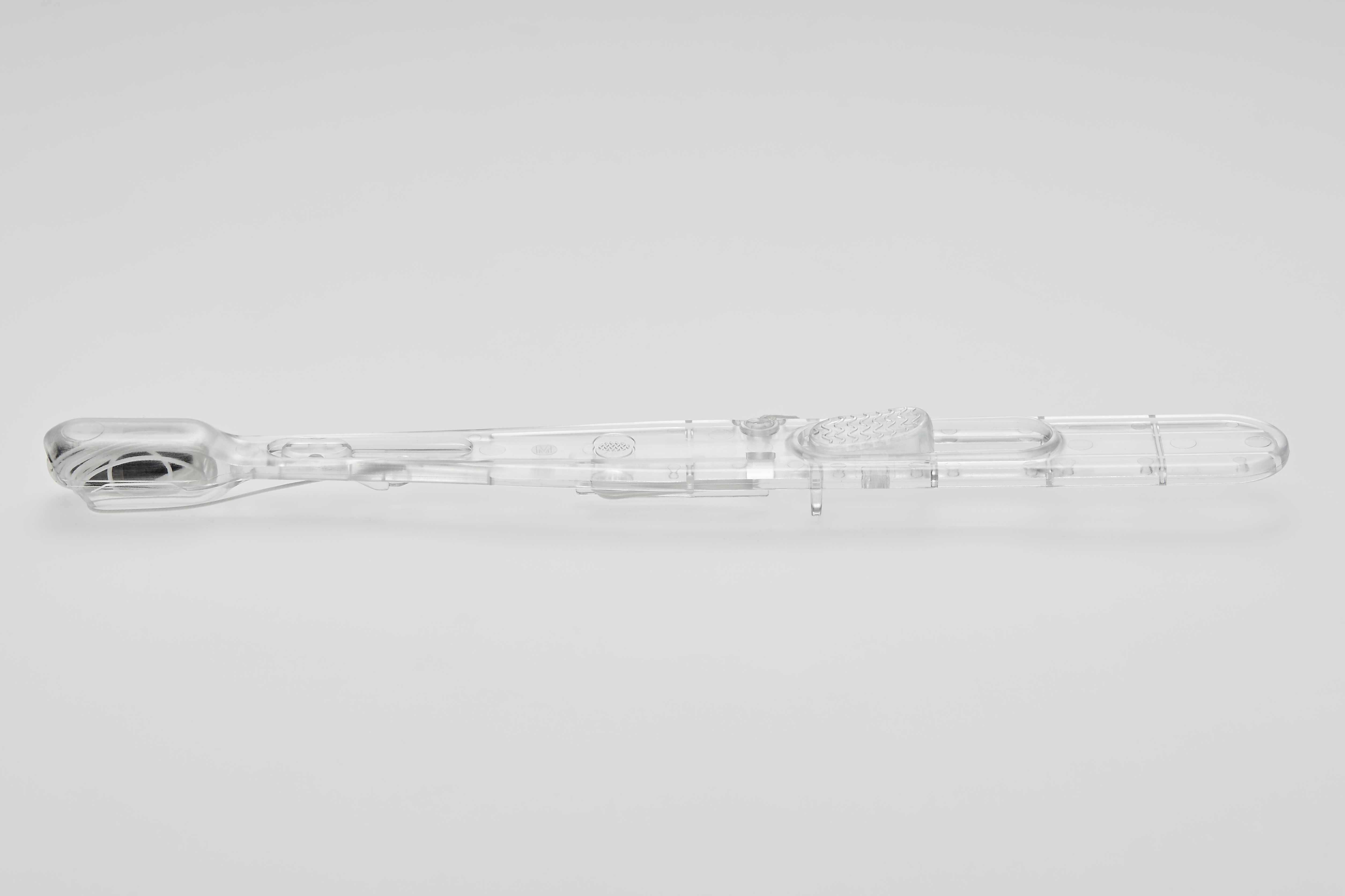Innovation
The capsule sponge test transforms patient outcomes from oesophageal cancer by finding people at risk earlier and faster
Competition
NHS Cancer Programme – Innovation Open Call – Competition 2

Name & role of Project Lead
Charlene Tang, Head of Growth, Cyted Ltd
LinkedIn: /charleneostang/
Clinical Problem
An estimated 9,300 patients are diagnosed with oesophageal cancer in the UK each year. Unfortunately, 7 in 10 patients are diagnosed at a late stage, when only ~20% of patients survive the year. By contrast, when detected at the pre-cancerous Barrett’s oesophagus stage, patients can be monitored for signs of cancer and receive prompt treatment, increasing survival to 80%.
Over 90% of ~1.5 million individuals with Barrett’s oesophagus have not yet been diagnosed so cannot be proactively monitored or treated. It is estimated that 4,000 patients with oesophageal cancer have been missed, as a likely consequence of 14,800 missed upper gastrointestinal (GI) referrals during the pandemic.
Proposed Solution
The capsule sponge test detects early oesophageal cancer and its precancerous condition, Barrett’s
oesophagus, with high sensitivity and specificity. Randomised clinical trials have demonstrated its clinical effectiveness, that it is cost effective as a case finding tool for Barrett’s oesophagus, and that it is more tolerable for patients than endoscopy.
This minimally invasive test can be delivered by a single trained healthcare professional in an office setting in under 20 minutes, making it ideally suited to primary care. The sample is sent to the Cyted laboratory for processing and analysis by our team of consultant pathologists. Here, a positive result for intestinal metaplasia or atypia and dysplasia biomarkers indicates Barrett’s oesophagus or early oesophageal cancer respectively, fast-tracking the right patients for endoscopy and treatment.

Market Traction and Implementation
-
Cyted has raised a total of $30 million of venture capital and grant funding to date, including from London-based BGF and US-based Morningside, as well as SBRI Healthcare and Innovate UK.
-
Cyted work closely with NHS organisations across the UK including AHSNs and Cancer Alliances, as well as patient advocacy group Heartburn Cancer UK.
-
Pilots are scheduled to start in late 2023/ early 2024 outside of the UK in the Nordics and in the US.
-
The capsule sponge test is available in over 60 hospitals and 10 GP practices across the UK.
-
The ongoing SBRI Healthcare implementation in primary care is being led by three Cancer Alliances: East of England, Lancashire and South Cumbria, and Wessex.
Impact - Early detection and diagnosis of cancer
-
The capsule sponge test has been shown to be safe and acceptable to patients in clinical trials
involving over 4,000 individuals across three continents and real-world implementation involving over 15,000 individuals across the UK. -
The capsule sponge test detects Barrett’s oesophagus and early oesophageal cancer with a specificity and sensitivity of over 90% (Ross-Innes 2015; Ross-Innes 2017; Pilonis et al 2022) and increases the number of Barrett’s cases diagnosed by more than 10-times when offered to individuals with chronic reflux compared to usual care (Fitzgerald 2020).
-
Health economic analyses of clinical trial data showed that offering the capsule sponge test in primary care for proactive case finding is a cost-effective solution falling below the NICE threshold (Swart 2021).
Impact - Patient outcomes and experience
-
GP-based clinics for the capsule sponge test in the North West Coast region offer Barrett’s patients a
surveillance option in the community who are at high risk of oesophageal cancer and are often those
waiting the longest for endoscopy. -
Appointment attendance rates were high and patients reported being pleased to have an alternative option to endoscopy that came with shorter waiting times, felt less invasive, and was more accessible in the community. Health inequity was found not to be a barrier to access with 56% of patients tested coming from the most deprived neighbourhoods compared to 49% of the population as a whole.
-
Similar findings have been observed in capsule sponge clinics based in hospitals (pending publication) and community care (unpublished), including a case of an individual who was too worried to go into hospital for an endoscopy during the pandemic, but was able to access the capsule sponge test in a mobile unit, where signs of concerning pathology were found and they were able to be prioritised for care.
Impact - Service delivery
Since its introduction to the NHS in 2020 in response to the pandemic, the capsule sponge test has helped recover endoscopy backlogs and improve operational efficiencies in endoscopy units:
-
The capsule sponge test can be offered to eligible patients waiting for routine endoscopy for chronic
reflux symptoms or surveillance of Barrett's oesophagus. Approximately 15% of these patients are found to have signs of suspected cancer or Barrett’s, and can be fast-tracked for urgent or routine endoscopy respectively, helping clinical teams risk stratify and prioritise patients. At least 78% of patients are found to have no signs of cancer or Barrett's and so can be safely taken off waiting lists (unpublished, data from NHS England), releasing endoscopy resources and saving costs. -
In NHS Scotland, the introduction of the capsule sponge test for Barrett’s surveillance has increased
the proportion of patients having clinically significant pathology at endoscopy from only 10% to over 50%(unpublished), enriching endoscopy lists and improving operational efficiencies. -
In 2022, GP-based clinics for the capsule sponge test proved how practice nurses and paramedics
can be up-skilled to offer Barrett’s surveillance clinics in the community, further reducing pressures on hospital-based endoscopy units. In the North West Coast, GP-based clinics reduced the number of patients waiting over 6 weeks from referral to procedure by 31% and delivered a positive return on- investment within 12 months, with a projected £3.9 million released and £1.20 returned for every£1 spent when implemented at an ICS level over 5 years (unpublished, data from Lancashire & South
Cumbria Cancer Alliance).
Practice Manager quote
"Our first reaction was: Why hasn’t anyone thought of this before? Our patients’ reactions
were overwhelmingly positive when we offered capsule sponge test as an alternative procedure."
Stephanie Driver Practice Manager, Oswald Medical Centre, Lancashire
Date Published
September 2023

